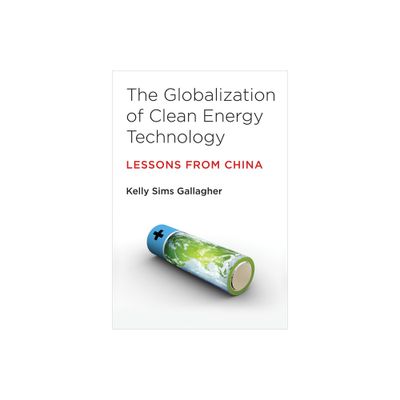Home
Clean Energy Diplomacy: Global Trend and China's Path
Loading Inventory...
Barnes and Noble
Clean Energy Diplomacy: Global Trend and China's Path
Current price: $180.00


Barnes and Noble
Clean Energy Diplomacy: Global Trend and China's Path
Current price: $180.00
Loading Inventory...
Size: Hardcover
*Product Information may vary - to confirm product availability, pricing, and additional information please contact Barnes and Noble
This book systematically constructs theories of clean energy diplomacy in the context of the changing international strategic landscape of energy and climate. It aims to explain the scientific connotations and innovative significance of clean energy diplomacy.
The book focuses on analyzing how the development of renewable energy, including wind, solar, and biomass, plays out in the evolution of the international power system. It also touches upon energy efficiency and complementary energy technologies. This book integrates the studies of traditional energy and environmental diplomacy and defines its connotations and extensions from the perspective of major country diplomatic strategy. Based on the latest developments of international clean energy diplomacy, the author also discusses China's strategic option of clean energy diplomacy in the broad context of the profound changes in global energy and climate governance.
As a new diplomatic model to enhance national competitive advantages, clean energy diplomacy has attracted the attention of many countries. This book will therefore be of great interest to students and scholars of sustainable energy and environmental management, environmental politics and policy, and those interested in the low-carbon economy in general.
The book focuses on analyzing how the development of renewable energy, including wind, solar, and biomass, plays out in the evolution of the international power system. It also touches upon energy efficiency and complementary energy technologies. This book integrates the studies of traditional energy and environmental diplomacy and defines its connotations and extensions from the perspective of major country diplomatic strategy. Based on the latest developments of international clean energy diplomacy, the author also discusses China's strategic option of clean energy diplomacy in the broad context of the profound changes in global energy and climate governance.
As a new diplomatic model to enhance national competitive advantages, clean energy diplomacy has attracted the attention of many countries. This book will therefore be of great interest to students and scholars of sustainable energy and environmental management, environmental politics and policy, and those interested in the low-carbon economy in general.


















